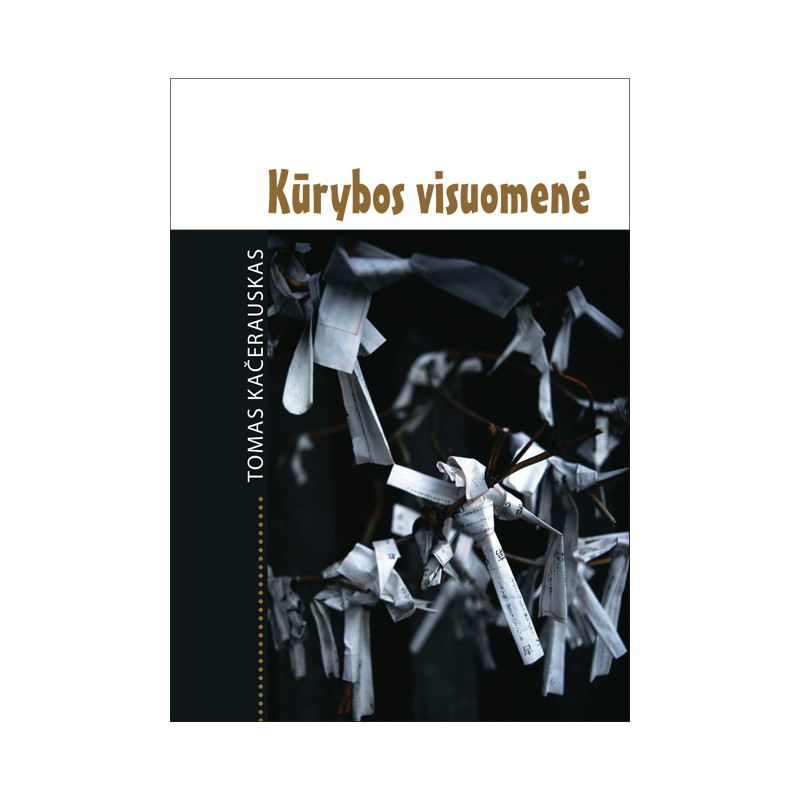
Reference: 32083
Mažų ir vidutinių įmonių internacionalizacija: aktualijos ir procesai globalizacijos sąlygomis
Renata Korsakienė Monograph (in Lithuanian)


Tomas Kačerauskas
Monograph (in Lithuanian)
The topic of a creative society relies upon the triangle of creativity, culture and society, while it also appeals to research issues by analysing of the problems of cultural and creative industries and by comparing the different regions of creative industries.
The core of the creative society is the creative class. The biggest difficulty is how to define it. Define it too narrowly, and its influence on the development of creative society falls under doubt. Yet defining it too broadly threatens to whitewash its identity.
The creative capital that embodies social mobility and renewing is inseparable from the social capital that embodies traditional social connections. Managing creativity relies upon a “soft” control of creative workers. Creative ecology relies upon the ideas that creation needs limits, that the content of a creative worker’s consciousness is to be renewed over and over, and that ecology is a disrupting strategy that resists the unifying tendencies of social engineering.
Creative ethics has been analysed by appealing to (unethical) regions of otherness. Creative ethics is contradictory in that it treats non-creativity as unethical regarding the creative society. The topic of creative maps has been nourished by cultural regionalistics, which appeal to different creative regions and meta-regions, as well to policies regarding them.
One creative region is the creative city that should be analysed in the context of both a mediated and a global society by trying to disclose the myth that the city is a haven of tolerance, openness and creativity. The topic of creative society also relies upon the relations between politics and creativity that has been analysed by looking to the creative aspects of politics. The sociability of creativity should be analysed by appealing to both the asociability of the creative workers and the social environment of creativity. The empiricism of creativity should be analysed by appealing to the aforementioned methodological difficulties.
An investigation of a creative society cannot avoid the topic of creative dialog that has been developed in the context of a cultural identity’s environment.
The 2nd edition of this book is already available
Electronic version of the book:
Data sheet
Reference: 32083
Renata Korsakienė Monograph (in Lithuanian)
Reference: 31162
Ivan Gnip, Saulius Vaitkus, Sigitas Vėjelis, Vladislovas Keršulis Monograph (in Lithuanian)
Reference: 916847
Bronislovas Spruogis, Vytautas Turla, Arūnas Jakštas, Marijonas Bogdevičius, Peter Hantel Monograph (in Lithuanian)
Reference: 908525
Algirdas Butkevičius, Juozas Bivainis Monograph (in Lithuanian)
Reference: 918120
Vladas Vekteris, Mindaugas Jurevičius, Algis Daktariūnas Monograph (in Lithuanian)
Reference: 915818
Vitalija Rudzkienė, Marija Burinskienė Monograph (in Lithuanian)
Reference: 31373
Algimantas Juozas Poška, Roma Rinkevičienė, Zita Savickienė, Saulius Lisauskas, Andrius Petrovas Monograph (in Lithuanian)
Reference: 910611
Juozas Bivainis, Živilė Tunčikienė Monograph (in Lithuanian)
Reference: 31811
Nida Vasiliauskaitė Monograph (in Lithuanian)
Reference: 915761
Rimantas Kalinauskas Monograph (in Lithuanian)
Reference: 31152
Tomas Kačerauskas, Tautvydas Vėželis Monograph (in Lithuanian)
Reference: 915829
Algimantas Nakas Monograph (in Lithuanian)
Reference: 31886
Pranas Aleknavičius, Marija Burinskienė Monograph (in Lithuanian)

Tomas Kačerauskas
Monograph (in Lithuanian)